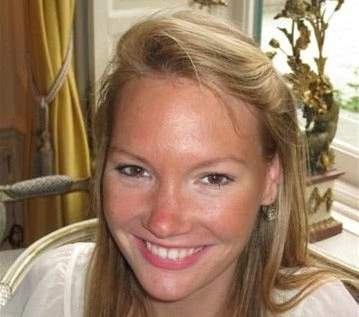 On October 26, Tunisians go to the polls for the first time under their new constitution to elect 217 new parliamentarians to govern their small Mediterranean country for the next five years. Besides the hectic political campaigning, though, another struggle is going on: the gender push.
On October 26, Tunisians go to the polls for the first time under their new constitution to elect 217 new parliamentarians to govern their small Mediterranean country for the next five years. Besides the hectic political campaigning, though, another struggle is going on: the gender push.
Where had all the “revolution’s women” gone, asked politician Rabiaa Najlaoui back in 2011, when signing up as an election observer in her home town of Kasserine. Najlaoui was a member of Nidaa Tounes, the largest secular political party. She realized that most of the party’s top candidates were men, despite the many women at the forefront of the 2011 Jasmine revolution.
Infuriated, she decided to join the Parliamentary race. “I had to break this prejudice that politics is not a women’s field,” she explained to me last month, sitting inside the Bardo Palace, where she has spent the past two years debating the contents of the new constitution.
The Arab Spring changed everything for Najlaoui. She saw young protesters shot dead before her eyes in her neighborhood, Ezzouhour. “I lived every moment during the revolution,” she said. But it was not easy to become part of shaping the country’s future. She had just turned 23, the youngest you can be to run in party elections. “Everybody was mocking me. They said: What is this tiny girl doing?” She smiled, adding, “but they underestimated me.”
Tunisia is often considered the most liberal country for women in the region, with a relatively strong tradition of women’s rights. In 1956, the Personal Status Code gave women full, equal legal rights, prohibiting polygamy and repudiation (divorce without legal proceedings). The new constitution, adopted on 26 January this year, continues to protect this—some argue it is another victory for gender equality.
Article 23 of its electoral law stipulates that lists of candidates drawn up by political parties, should be gender equal: “nominations should be based on the principle of parity and alteration between men and women.” Each political party has one electoral list per district, representing their Parliamentary candidates. When it comes to the names heading the list, however, the reality is different. Of the 1, 315 lists in this election, just 145—about 10 percent—are led by women.
Najlaoui says change needs to begin with people’s opinions. Even her father was sceptical: “He did encourage me but my mother actually believed in me, that is the difference,” she said. Not only men but also women thought she was crazy. “They asked me, why are you doing this to yourself?”
Najlaoui believes many women in Tunisia stay out of politics out of the fear of what will be said behind their backs—“who will marry her now?” is their thinking, she said. She herself has never regretted her decision (“I am proud”). Originally she hadn’t intended to win: “I only wanted to participate, I wanted to break the rules.”
Despite Najlaoui’s passion and determination, she will not run in this year’s parliamentary election, though, a decision that was taken for her. “I would have loved to, of course, but it is out of my control.” Her political party did not put her on its list of candidates in her constituency.
While Najlaoui will leave the political scene for now, Haifa Belkhir, another young woman from another poor province of Tunisia, is hoping to win a seat. “I want to help my region,” she explained when I visited her home in Siliana—farming country and, historically, a marginalized province. “The economic situation is priority number one here,” she said, adding “we have to decrease the unemployment rate before it starts killing our people.”
Her decision to enter politics was not easy either. “Time is the biggest challenge for female politicians,” she said. The 30 year-old mother of an eight month-old baby boy tries to juggle her time between her son, her political engagements and her job as a teacher. Luckily, her husband is very encouraging. “He has been supporting me and giving me the self-confidence I needed,” she said.
Belkhir sees politics as a duty: “Women need to take destiny in their own hands.” She is number three on the list for the center-left party, Ettakattol, in her hometown of Al Karib.
In Tunisia’s first democratic election after the 2011 revolution, half the candidates were women, but they won only 23 percent of the National Assembly—49 of the 217 seats—a number that still placed Tunisia above the global average of 21.8 percent, according to the Inter-Parliamentary Union. Despite this, there were just two female ministers in its outgoing government—Amel Karboul, its Minister of Tourism and Nejla Moalla Harrouch, the Minister of Trade—and although the new constitution guarantees women the right to contest the presidency, only one of the 27 contenders this time round is a woman, Judge Kalthoum Kannou.
Human Rights Watch’s researcher, Rothna Begum, says Tunisia is one of the region’s few countries with a constitutional obligation to work towards gender parity in the elected assembly. Begum emphasized the importance of providing women in politics campaign and leadership support.
So, how should women be encouraged to get more involved in politics? Belkhir believes that speaking to women—exposing them to the idea of female politicians—will change their minds. Both she and Najlaoui say that seeing women politicians on television daily has started to alter popular perceptions. “I believe … the first step needs to be taken before the second and third,” said Najlaoui, patiently. The struggle for Tunisian women aspiring to be politicians has just begun.


Join the Conversation